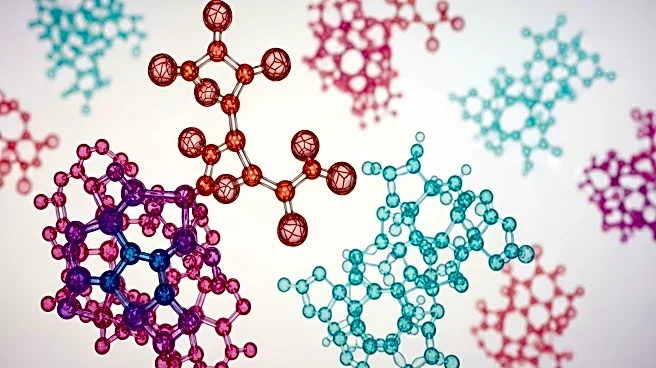What's Happening?
An international team of scientists has uncovered the molecular mechanisms by which amino acids stabilize proteins in medical formulations. The study reveals that amino acids exert their protective influence through fundamental physical chemistry principles, modulating colloidal interactions rather than biological specificity. This discovery redefines the understanding of molecular stabilization in solution.
Why It's Important?
The findings have significant implications for the pharmaceutical industry, particularly in the development of stable protein therapeutics. By understanding the role of small molecules in colloidal interactions, researchers can improve drug formulations, enhancing efficacy and reducing production costs. This knowledge also offers insights into stress responses in biological systems, potentially informing environmental and agricultural practices.
Beyond the Headlines
The study advocates for meticulous reporting of amino acid concentrations in experimental setups, emphasizing their impact on reproducibility and interpretation of biochemical phenomena. It also opens avenues for predictive design in protein stabilization, potentially accelerating the development of stable biopharmaceutical products.









